Black Mirror season 4 producer reveals details on every new episode of the Netflix series – exclusive
Annabel Jones teases season four of Charlie Brooker’s anthology Netflix show
In seven short years, Black Mirror has transitioned from Channel 4 three-parter to globally renowned Emmy award-winner for Netflix.
Its third season – which debuted on the streaming service in 2016 – scored the series a legion of new fans all willing to be swept up by its dystopian tales – at times life-affirming, at others distressingly bleak – brought to life by the creative minds of Charlie Brooker and Annabel Jones, not to mention a crop of Hollywood talent ranging from Joe Wright to Jodie Foster.
The Independent was granted an exclusive opportunity to speak to Jones – fresh from the show’s double Emmy win for the episode “San Junipero” – who was, at the time of talking, completing work on the six episodes that’ll comprise season four.
“It feels slightly schizophrenic, I have to say,” Jones quipped. “Why would anyone make this show? You have to be a real masochist. Obviously, I should add it’s a real privilege.”
With the episode titles, cast and directors already announced for each, Jones divulged more details on what to expect from each instalment which you can see below alongside our full interview.
Black Mirror returns to Netflix later this year.
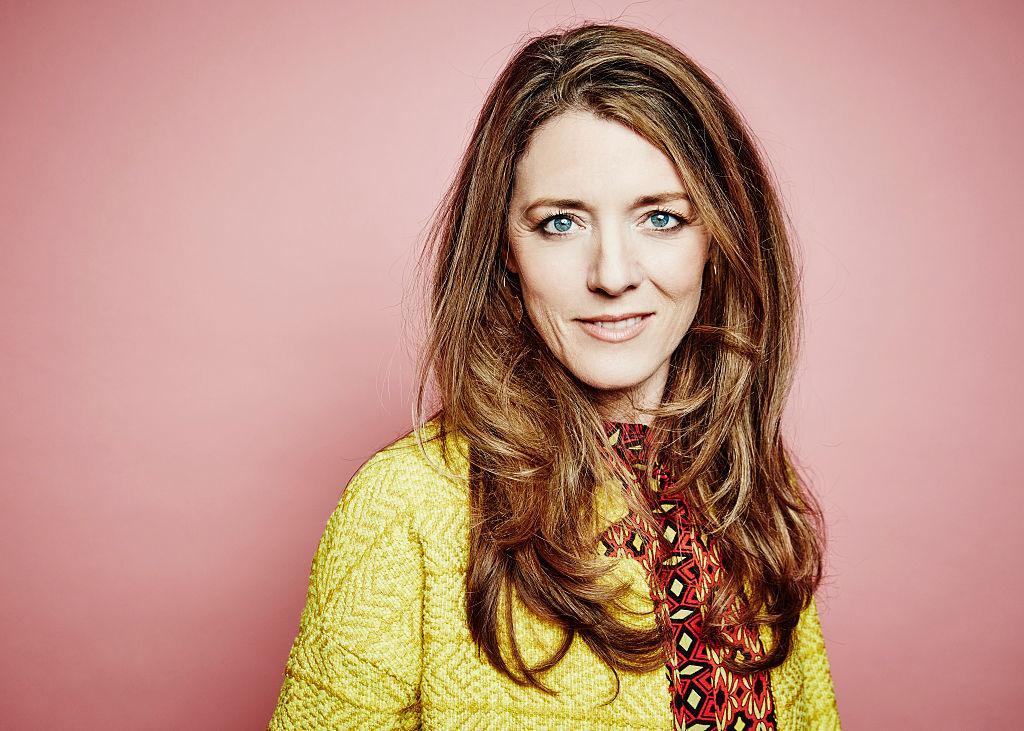
AJ: At some point, I won’t be able to say this but I think we’ve managed to again come up with six new different episodes. I think – and I’m sure Charlie would agree – if we ever got to point where we didn’t feel like we were telling new stories, we’d have to stop. It’s hard when you’re an anthology series [but] I think all the new episodes in the fourth season all feel very different – there are things we’ve not yet explored and genres we haven’t tackled.
Episode one: ‘Crocodile’
‘Crocodile’ is a beautiful, more personal study. It’s set in Iceland which introduced a totally new palette – one of the privileges of doing Black Mirror is the opportunity to create different worlds and moods and tones. It’s a film set in the near future where your memories are no longer private so they can be dredged – sometimes in helpful ways. It’s very different to [season one episode] ‘The Entire History of You’ in that they’re not accurate – they’re memories rather than recordings. We follow Andrea Riseborough, a woman trying to solve a dilemma...
Episode two: ‘ArkAngel’
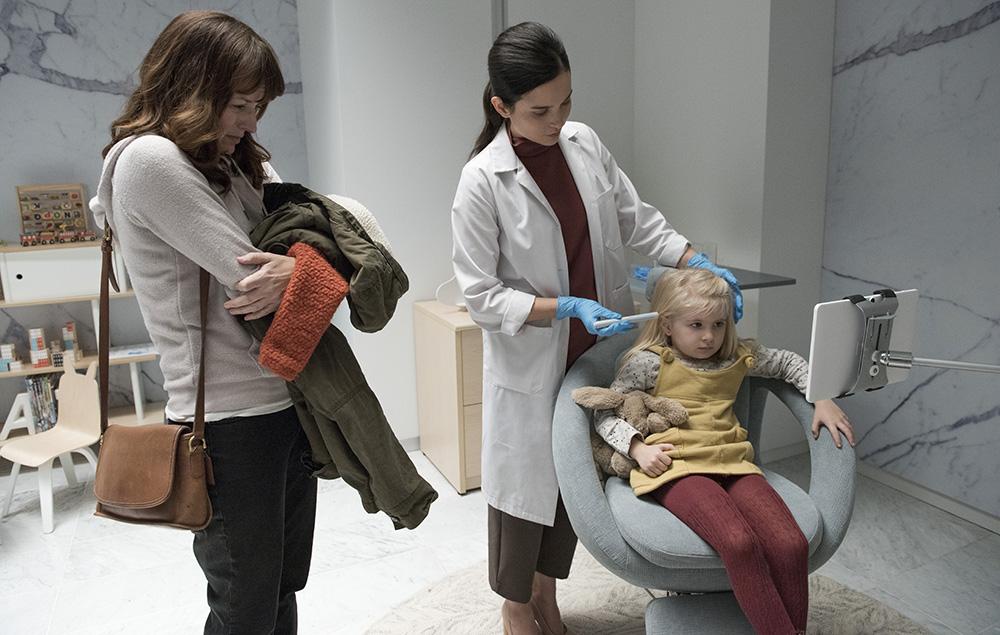
So this one’s like an indie movie set in blue-collar America, even though we filmed it in Canada. It follows a mother who has a young daughter and faces that perennial question of how to look after a child in an increasingly technical world; it taps into helicopter parenting… I always hope that whatever we tackle, it’s never on the nose and just more in the background but this episode asks how do you be a responsible mother in a world in which you can be all-powerful and omnipresent? How do you exercise responsibility? How do you ensure you give your child independence in a world in which you can have a lot of control? Charlie’s very technical – I’m a little bit technical – but none of these stories really ever have technology screaming down the lens. ‘ArkAngel’ is a very human story. It was a really harmonious production and watching [director] Jodie Foster with the young actors was just a joy to behold.
Episode three: ’Hang the DJ’
‘Hang the DJ’ doesn’t look contemporary but some of the observations and scenes that it tackles are… pertinent to the contemporary dating scene. It involves a lot of comedic moments. There’s quite a lot of sex in it – not a huge amount, but come on, who’s complaining? It’s funny, it feels real, and has that ‘Nosedive’ feel – a very alternative reality visual to it. You don’t know where you are or what world it is, but very quickly that becomes background – you’re just there with the characters, you’re seeing what they’re experiencing. I think there is a lot of comedic wry observations in the protagonist’s story that people will enjoy. It’s beautifully acted by Georgina Campbell and Joe Cole. People will enjoy this one with a little smile.
Episode four: ‘USS Callister’
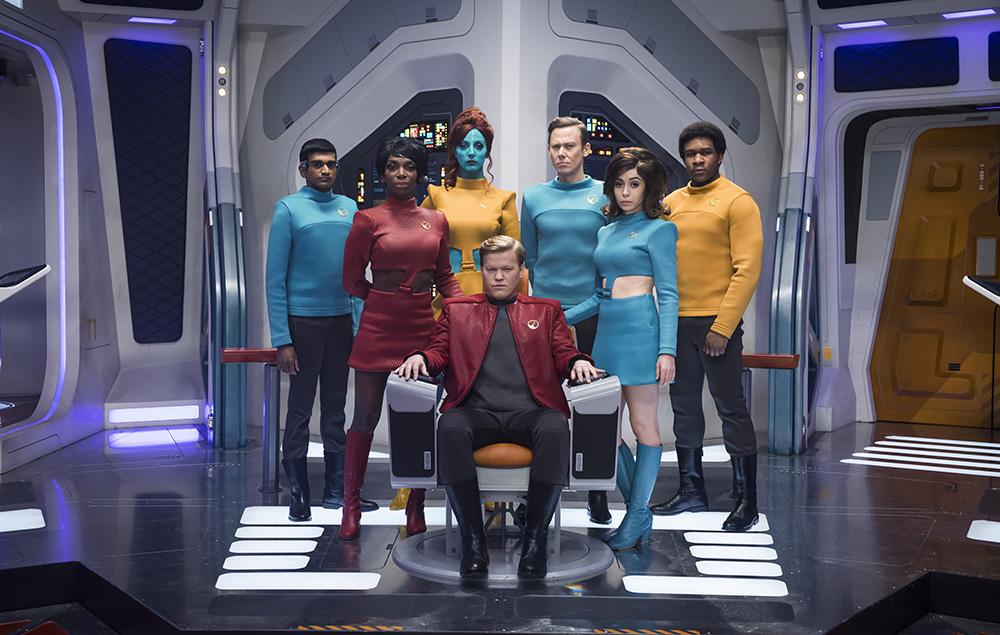
‘USS Callister’ is a space opera. The challenges of trying to create that world, and obviously getting to play with the genre, opened a whole new opportunity. But I think we’ve put a clever spin on it. It’s a romp – it’s big and ambitious with lots of CG. It’s an absolute visual feast and really high octane. There are obviously more unsettling, poignant and slightly more melancholic moments, but at the same time, it is a romp. It’s such a treat for a filmmaker to be making a film this epic.
NB: we predicted a space-set episode when chatting with Brooker himself ahead of season three last year.
Episode five: ‘Metalhead’
This film is in black and white which is a new thing for Black Mirror but it feels the creative decision was earned by the world we’re portraying.
Episode six: ‘Black Museum’
‘Black Museum’ is absolute popcorn. It’s three stories in one – a portmanteau-type thing – but absolutely full of ideas that whip along and before you know it you’re at the end of a 90-minute film and you’re like, ‘Oh my God, can you please stop? This is horrendous – stop throwing me these things!” It’s just unrelenting. It was the last we did in terms of shooting.
Were you surprised by how big the show got immediately after season three debuted on Netflix?
You get into a bit of a bubble. It’s your own production – just you and six films – and you don’t ever get to raise your head and look out ’cos you’re so immersed in the film. Then you get a moment where you go, ‘We’ve still got to do all these films for next season but Netflix want to fly us out [to America] for this thing called the Emmys. Oh right, and we’re nominated? I guess we have to go,’ and then you go out and win and you think, ‘Hold on – how did this happen?’ We were a failing show on Channel 4 – well, not failing – but a show that they didn’t want anymore and now... It doesn’t fail to surprise me.
It’s a staggering journey – and a series close to Britain’s heart. The majority of UK headlines after the Emmys weren’t about The Handmaid’s Tale or Big Little Lies but about Black Mirror winning two awards
Oh, that’s nice! Annoyingly we were in LA the morning after getting ready to fly back, so Charlie and I didn’t see any of that. In our heads we’re still a small little show; we make it out of Twickenham Studios which is very small – not very film-like – but I think that’s what makes the show successful… if I can say successful. We keep it very small, it’s very intimate – it’s me and Charlie in a room so I hope the films feel very loved and nurtured and worried over. That’s what we care about.
There’s always a fear when a show grows in popularity and gets handed a bigger budget that it will lose what was so unique about it in the first place – was there ever a concern this could happen?
No, I don’t think there was ever a concern. I was acutely aware of that in that I didn’t want it to happen. These stories resonate because there’s a relatable story at the heart of them. I’m not a very big sci-fi fan – I haven’t really read or watched a lot in the past so for me, these stories always have to earn their place emotionally. It can’t just be a concept otherwise it becomes remote and alien – an intellectual exercise rather than an emotional engagement.
I think what’s interesting about Black Mirror – and this is perhaps something only Charlie and I analyse and no one else gives a shit about – but we don’t ever tell stories about big evil corporations. We don’t ever tell stories about conglomerates or anything evil and corrupt because one, I don’t really know that world, and two, I don’t really recognise that world – I don’t think it really exists. If terrible things happen it is probably down to human error or maybe one or two megalomaniacs – I don’t think the world is evil. So, even if you have a bigger budget, if your DNA is the same you’re just going to hopefully be given the opportunity to tell the same stories but in a different place.
For example, last season we did ‘San Junipero’ – while there’s a big concept there, most of the story doesn’t revolve around that; it’s a backgrounded device to tell our human story. If we had a smaller budget, we’d probably have had to set it in the UK but when I looked back at how I perceived the 1980s, all my references were American. So the Netflix money allowed us to say, ‘Let’s not set this outside of Brighton, let’s put it in a Californian seaside town’ which adds a layer of authenticity. It helps us create that mood, that nostalgia. It allows all these stories to live a little bit more creatively but without breaking what was unique to Black Mirror.
‘San Junipero’ was hailed as a highlight of last season and was the episode that won the series two Emmys. Were you surprised by the intense love for that episode?
Was I surprised? Well, I love it with a passion [laughs]. We just told a love story between two people who [ultimately] happened to be 80-year-old women. It could have become a big sci-fi number but it wasn’t – we kept it very intimate. So yes, I’m obviously surprised to win the Emmy but also delighted that people cared for it as much as we did.
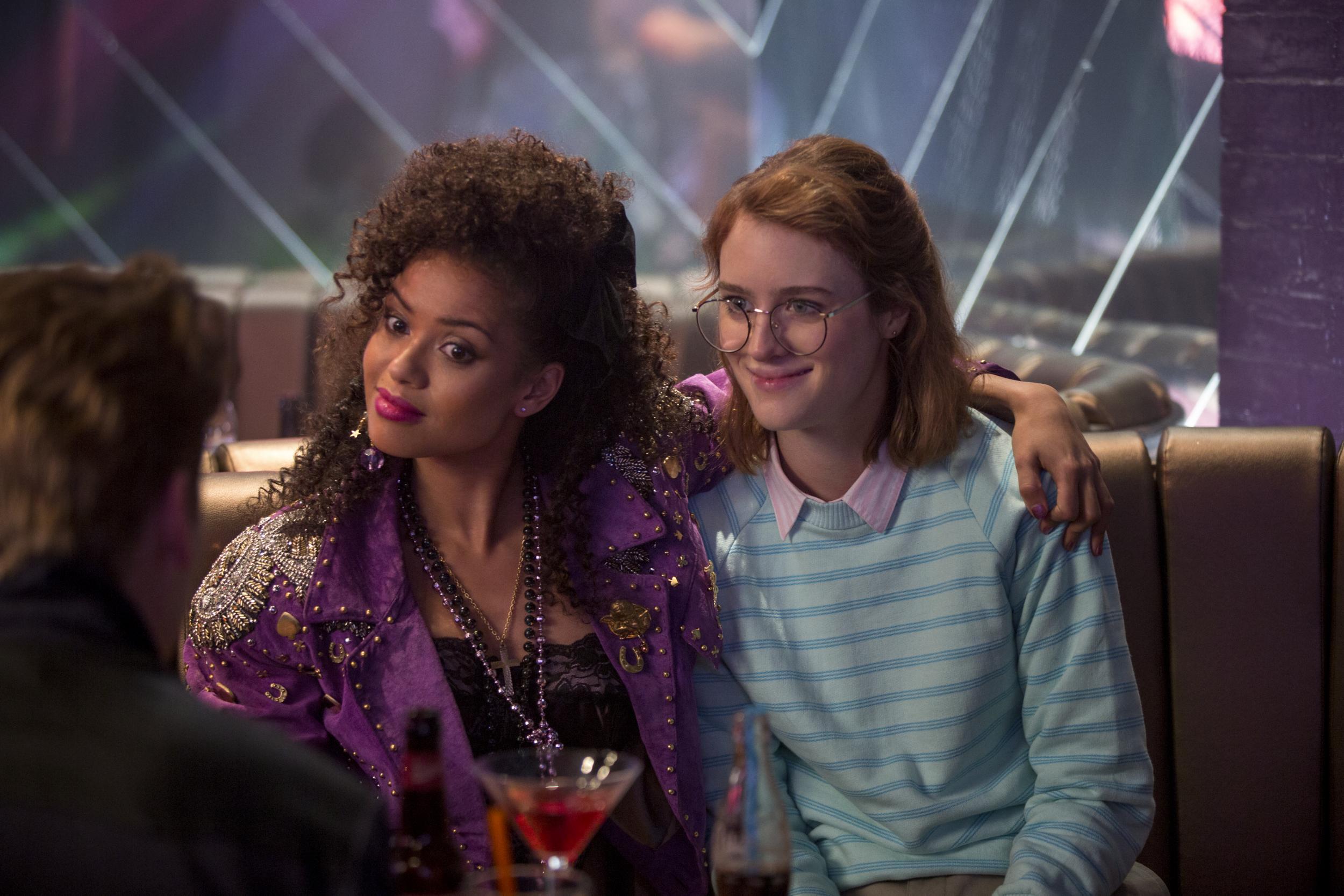
What did Jodie Foster [director of season four episode ‘Arkangel’] bring to the series?
A lot of humility from the team and crew working with her. It’s one of those funny moments where you hear Jodie Foster would like to [direct an episode] and you have a moment where your heart drops and you go, ‘Oh no, we’re going to be exposed as amateurs!’ We’re only a small little production – even though we should be much bigger. But it was an absolute delight to watch her work. She’s been in the industry for so long – as actor, producer, director – she knows everyone’s job. Everyone around her was like, ‘She’s going to know I don’t know what I’m doing,’ but she would never let anyone feel self-conscious or in awe of her, she wouldn’t allow any of that.
Have there been any ideas which you and Charlie threw out for being too psychologically draining?
If I said no, would you be appalled?
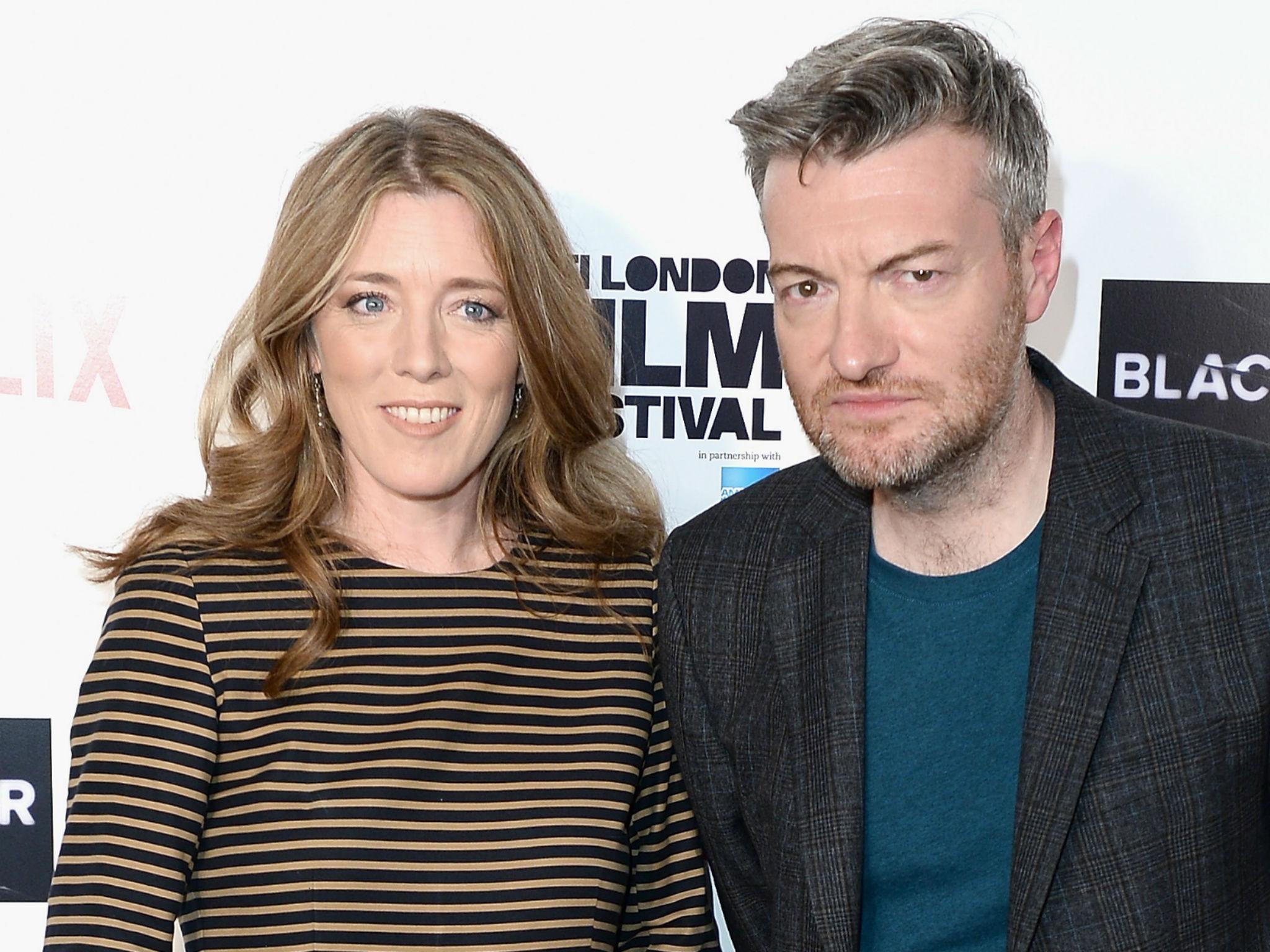
That’s what I want to hear! How do you and Charlie decide which order the episodes are unveiled in?
We do agonise over it. There are obvious things – like you wouldn’t want any hard-going or emotionally brutal episodes going back-to-back because frankly who’s going to keep watching? You need to see a moment of peace or some lighter comedic episodes or some wry observations so we try to separate the heavy hitters. But at the same time, a lot of people like Black Mirror because it is a challenging drama that’s prepared to unsettle viewers occasionally. There needs to be room in broadcasting for those TV shows.
No one really knew what Black Mirror was when we started on Netflix so we had to sort of educate viewers that this wasn’t going to be a continuing narrative. It’s never about the best film being first, it’s all about trying to create a mood. Here’s w**ky for you – it’s like creating a playlist, managing the mood and the journey. This season it’s going to be really difficult because there are some big epic thrilling pieces.
When will season four be released?
“Later in the year” is the line we’ve been fed.
Alongside Black Mirror creator Charlie Brooker, Annabel will be taking part in Esquire Townhouse with Dior (October 12-15), a curation of live talks, interviews and masterclasses with speakers ranging from Cillian Murphy, Vince Vaughn and Christoph Waltz to author Alan Hollinghurst and designer Sir Paul Smith. They will explore contemporary themes of techno paranoia and the inspiration behind their televisual phenomenon, now returning to Netflix for its fourth season; hearstlive.co.uk
Follow Independent Culture on Facebook
Join our commenting forum
Join thought-provoking conversations, follow other Independent readers and see their replies
Comments
Bookmark popover
Removed from bookmarks